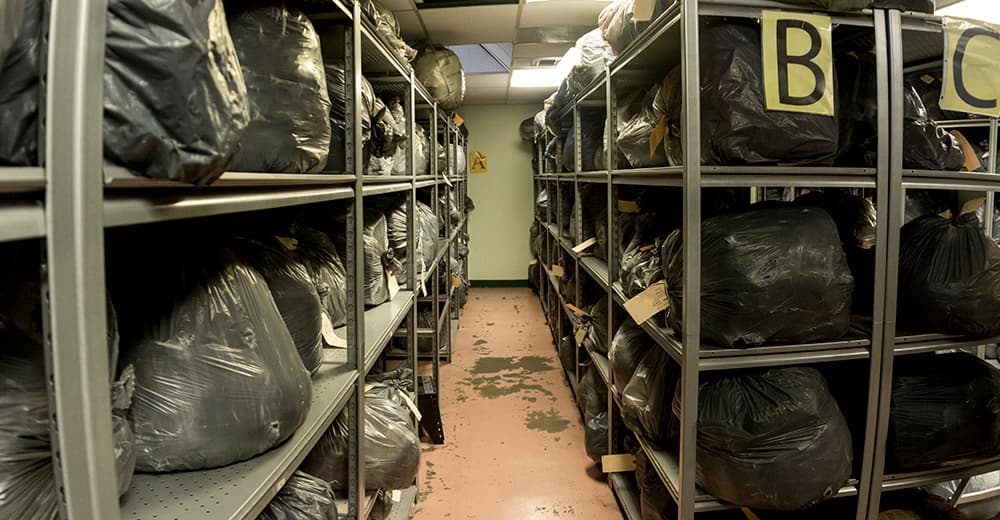
One of the reasons homeless people give for not going to Denver's shelters is that they have nowhere to store their belongings. Fear of losing all their earthly possessions can also be a barrier to getting a job or even seeking medical care.
So Denver is testing out a sidewalk storage system to see if people use it and how they use it -- and if it's worth continuing on a larger scale.
The city installed 10 metal storage lockers last week along Lawrence Street near the Samaritan House and the Denver Rescue Mission. This is the same part of town that has been the site of repeated "sweeps" or enforcement actions by city public works crews and police to clear out encampments of homeless people.
The lockers are large enough to hold about a shopping cart's worth of stuff and can be reserved for a 30-day period with one renewal for a total of 60 days, said Julie Smith, a spokeswoman for Denver Human Services. To use the lockers, a person will have to be actively engaged in services of some sort.
The city also has a contract to expand the St. Francis Center's small- and medium-scale storage facility to its Capitol Hill location. St. Francis already has 500 storage spaces in its Curtis Street location. The contract would add another 200 spaces to the center's employment services office on the 1600 block of East 14th Avenue, Smith said.
Smith credited homeless people and advocates for raising awareness about the role storage plays in people's decisions to seek or forego services.
"If you don't have access to safe, secure storage and those are all your possessions in the world, that's sometimes a really tough call," she said. "We want to reduce those barriers that people might have in terms of getting a job, getting health care and getting shelter."

Providing more storage options for homeless people is one of 30 immediate action items the city identified as part of a plan to do more to address affordable housing.
In doing this as a pilot program, Smith said the city is trying to get information about how people use the lockers and how frequently before investing more money.
The sidewalk storage lockers cost about $3,000 each to install, and the pilot program will run for 90 days. The contract with St. Francis, which starts June 1, would pay the non-profit $130,000 for storage space the first year and $100,000 after that if the program continues. The additional money for the first year relates to start-up costs, Smith said.













